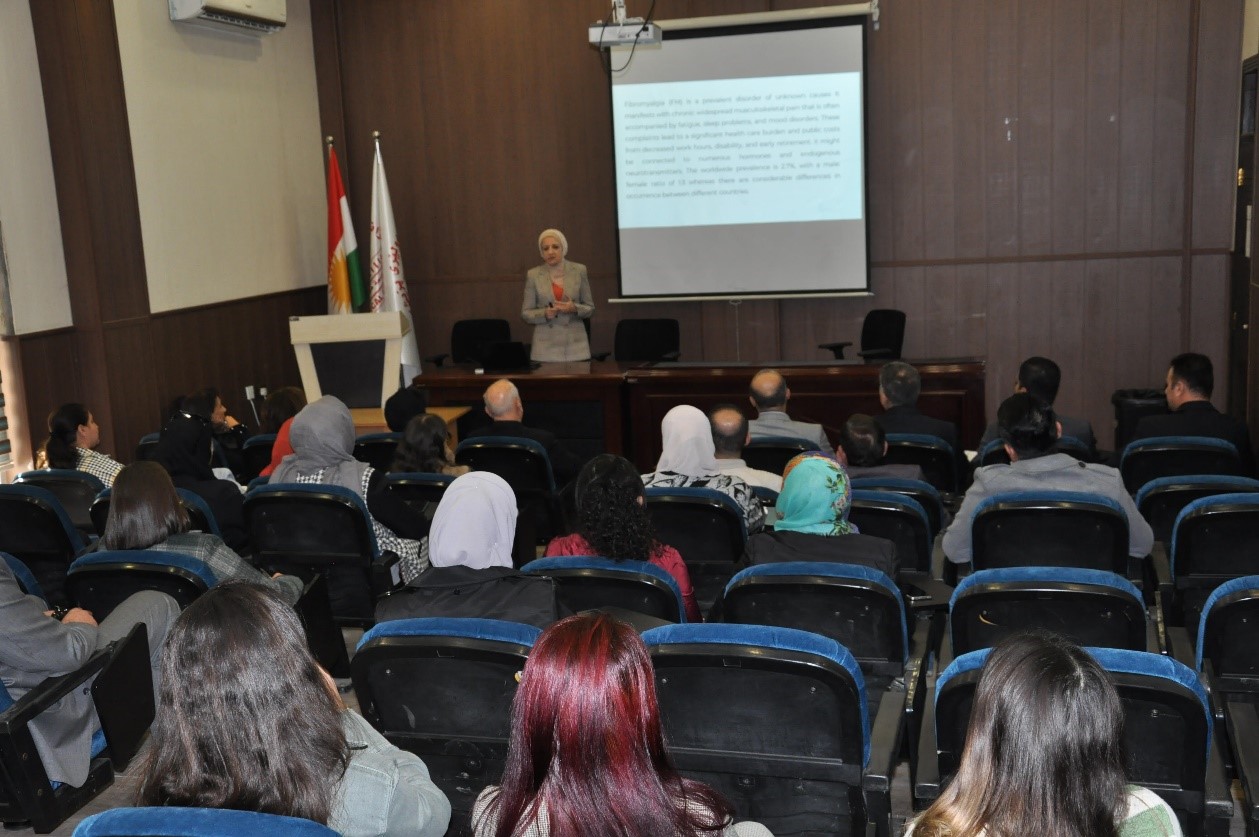At the College of Pharmacy, on Monday, November 28, 2022, the Quality Assurance of the College of Pharmacy held the national workshop entitled "Is Fibromyalgia Real"
The presenter, Talar Ahmad Merza, Lecturer at Hawler Medical University, provided vital information on Fibromyalgia to facilitate reality of fibromyalgia, especially with the increasing socioeconomic, Emotional (psychological), and physical stress burden. Stress weakens body. In a weakened state, you're more vulnerable to fibromyalgia's symptoms, such as chronic pain, fatigue, and depression, and the perceptions of people living with chronic illness change over time, contributing to health-related stress that necessitates coping skills. Many researchers believe that if certain stressful triggers are eliminated, the symptoms of fibromyalgia reduced.
The presenter focused on some important findings in the fields of biomedical and psychological research, with a specific focus on steps involved in the pathogenesis of FMS. The pathophysiology of fibromyalgia involves a number of factors, including abnormalities in the neuroendocrine and autonomic nervous systems, genetic factors, psychosocial variables, and environmental stressors. These factors are involved in other disorders that frequently co-occur with fibromyalgia and are also characterized by persistent or recurrent pain and emotional distress, such as IBS and major affective or anxiety disorders.
Workshop Outcome
At the end of workshop all the participants were familiar with the following points in Fibromyalgia:
- Fibromyalgia and Prevalence of fibromyalgia
- Fibromyalgia causes.
- Co-morbidities of fibromyalgia
- Pathogenic mechanisms in FM and centralized pain states
- Conversion of acute pain perception to chronic pain in fibromyalgia
- the involvement of mast cells in the generation of pain in FMS
- Stress evoked enhanced levels of CRH and substance-P leading to a stimulatory release of cytokines through activation of mast cells and subsequently resulting in pro-inflammatory effects
- The involvement of BDNF in the pathogenesis of FM.
- Changes in the HPA-axis in Fibromyalgia
- The important roles of Growth hormone that missed in Fibromyalgia
- The role of Neurotransmitters in eliciting the cardinal sign and symptoms of fibromyalgia
- Instruments that used in assessment of fibromyalgia
- The proposed steps involved in the pathogenesis of FMS and targets for treatment.
- Speaker Information
Talar Ahmad Merza, Lecturer at Hawler Medical University. MSc, PhD in clinical pharmacy. She is working as researcher in the fields of CVD, pain management, and therapeutic drug monitoring. In addition, she serves as a speaker for pharma courses (online education for health care professionals).



